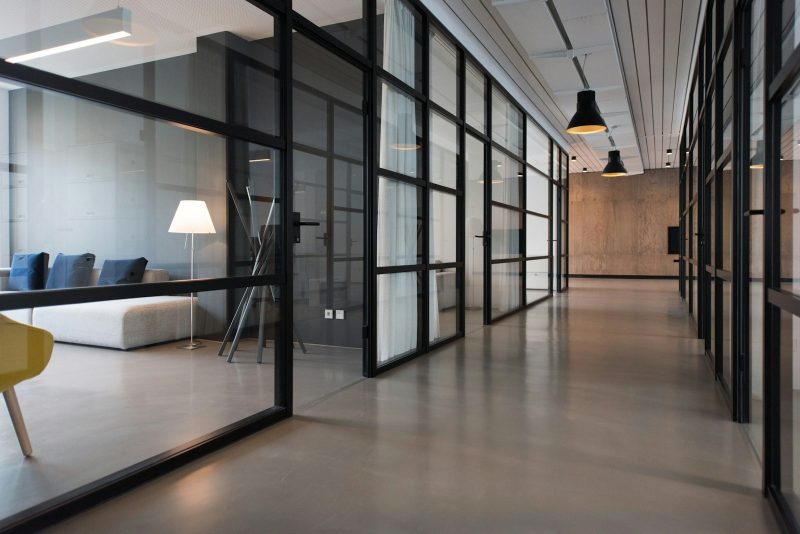Finding tenants for a commercial property is challenging enough, but keeping the right ones is even harder. Long-term, reliable tenants are the foundation of a stable investment; they provide steady cash flow, reduce turnover costs, and enhance the overall value of the property.
Retaining these tenants requires more than simply collecting rent, of course. The secret is all about fostering relationships through effective property management – and creating an environment where businesses want to stay.
Why Tenant Retention Matters
Vacancies can be expensive in commercial real estate. When a space sits empty, owners lose not only rental income but also money on utilities, maintenance, and marketing. Filling a vacancy often involves broker commissions, renovation or build-out expenses, and months of lost revenue.
In contrast, retaining high-quality tenants provides predictable cash flow and strengthens a property’s reputation. A building filled with satisfied tenants is more attractive to future renters, lenders, and even potential buyers. In short, keeping valuable tenants in place is one of the most profitable strategies a landlord can pursue.
Strong Communication and Responsiveness
Tenants need to feel heard. Quick responses to maintenance requests, regular check-ins, and clear communication about policies or changes build trust. If issues go unresolved or communication is poor, tenants may begin looking elsewhere before their lease ends.
Even small gestures, like seasonal updates, holiday greetings, or tenant surveys, signal that management values the relationship. Landlords who consistently demonstrate accessibility and attentiveness are more likely to enjoy long-term tenant loyalty.
Maintaining and Upgrading the Property
Physical condition plays a huge role in tenant satisfaction. Well-lit common areas, clean hallways, reliable elevators, and secure parking all contribute to a positive environment. Upgrades help too; energy-efficient systems, modern interiors, or refreshed landscaping keep properties competitive. For retail tenants, visible improvements such as updated signage or exterior design enhance foot traffic, which benefits their bottom line and reinforces their decision to stay.
Flexible and Fair Lease Structures
Tenants’ needs evolve, and inflexible leases may push them to move. Renewal options, expansion rights, or the ability to downsize within the same property help businesses adapt. Flexibility doesn’t mean sacrificing profitability, as creative lease structures such as tiered rent increases, performance-based clauses, or shared improvement costs balance tenant needs with landlord goals. A reputation for fairness and adaptability can make tenants eager to renew.
Building Partnerships With Tenants
Commercial landlords who position themselves as partners, not just property owners, retain tenants more effectively. This may mean collaborating on marketing efforts for shopping centers, co-hosting community events, or offering small concessions during economic downturns. When tenants believe their success matters to the landlord, they see the property as a long-term home for their business. Ultimately, this collaborative mindset transforms the relationship from transactional to strategic.
Incentives and Renewal Strategies
Formal retention strategies can tip the scales when tenants weigh whether to stay or go. Renewal incentives, like a cap on rent increases, minor renovations to their space, or early renewal discounts, make the decision much easier. Some landlords also provide tenant improvement allowances, helping businesses refresh their spaces without shouldering the full financial burden. These investments often pay for themselves by securing another lease term and avoiding costly vacancies.
The Role of Tenant Mix
In retail and mixed-use properties, tenant mix is especially important. A properly diversified lineup of tenants attracts more customers and strengthens overall business performance. Anchor tenants like grocery stores or gyms bring consistent traffic, which benefits smaller businesses in the same property. When landlords cultivate a complementary mix, they create an ecosystem that encourages all tenants to stay, and tenants are less likely to leave when their neighbors help drive customers to their doors.
Professional Property Management
Managing relationships, maintenance, and leases can be time-consuming, particularly for owners with multiple properties. Professional property management companies streamline operations, ensuring consistent service for tenants. These managers provide 24/7 maintenance response, oversee lease compliance, and act as a neutral point of contact. For many landlords, the cost of professional management is offset by reduced turnover and improved tenant satisfaction.
Adapting During Economic Shifts
Economic downturns test tenant relationships. Businesses under financial strain may struggle to keep up with rent or consider downsizing. Landlords who show flexibility through temporary rent adjustments, modified payment schedules, or short-term concessions often retain tenants who would otherwise leave. Supporting tenants during hard times also builds goodwill and loyalty, making them more likely to stay long after conditions improve; think of it as a long-term investment in stability.
The Big Picture
Retaining valuable commercial tenants is a practice most effective when established through building lasting relationships, maintaining property quality, and demonstrating flexibility. With clear communication, proactive maintenance, strategic incentives, and professional management, landlords can create an environment where tenants see long-term value in staying.
For commercial property owners, tenant retention isn’t just a good practice; it’s essential to long-term success.








